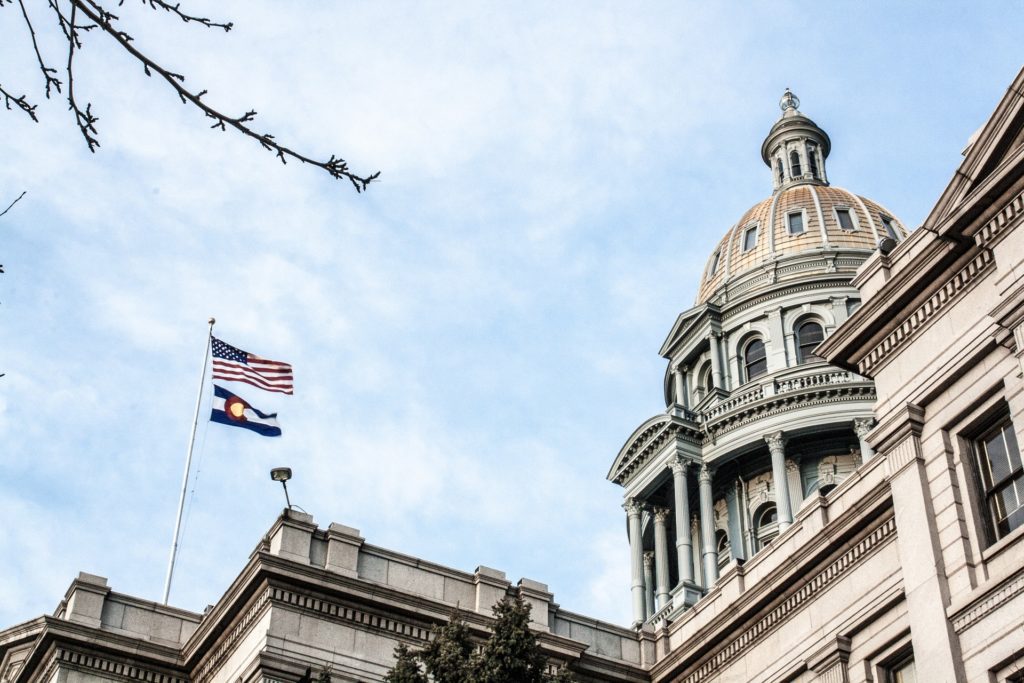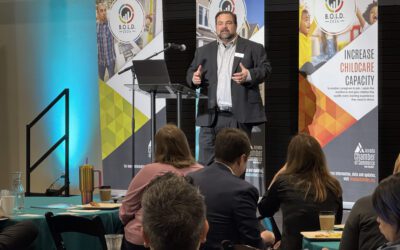
By Jeff Weist, Jefferson County Business Lobby
The Jefferson County Business Lobby (JCBL) — the united voice of JeffCo businesses at the Colorado State Capitol – was very active analyzing and lobbying legislative proposals for the 2022 session that ended on May 11. This year, nearly 700 bills were introduced, including several significant ones in the final weeks of session.
This was a mostly back-to-normal legislative session, being the first full session uninterrupted by COVID. Nevertheless, a slow start and aggressive agenda from the majority party in both chambers meant many late nights as bills stacked up on the calendar in the last two weeks of the session. That gave the minority Republicans some leverage by seeking to delay consideration of bills using procedural motions.
Despite those efforts, the legislature did accomplish a number of major priorities that were heavily lobbied by the business community.
A big one for employers was SB22-234, which backfilled $600 million into the unemployment insurance trust fund, which was drained by pandemic-related unemployment claims. The bill also made some minor tweaks to Colorado’s unemployment process, including eliminating the one week requirement that an individual wait before they are eligible to receive benefits.
Legislators compromised on a property tax bill (SB22-238) in order to avoid a showdown on the ballot in November. Soaring Colorado property values will result in dramatically increased property taxes. At the end of the day, lawmakers agreed on a compromise to slow down the overall increase of property taxes by $700 million.
Another bill closely watched by JCBL was SB22-230, making it easier for county employees to collectively bargain. While the bill ultimately passed, it was a much narrower version than first proposed.
In the final weeks, legislatures also set up a broad framework for how the state will spend several billion dollars from the federal government as a result of the bipartisan infrastructure bill. Those funds will be as much as, if not more than, the state’s federal rescue plan funding. Legislature will leave all the decisions on how that money is going to be spent, at least for now, to the Governor. The expectation is that this will fund roads and bridges, rural broadband, and other big issues.
The state also decided how the TABOR refund from the last fiscal year will be administered. The Democratic majority agreed to send all taxpayers a $400 check. The JCBL weighed in with our legislators to ensure small business owners and others who filed for an extension on their tax return would be eligible this refund.
A number of bills concerning the impact of construction and buildings on climate change passed this year. A major bill we tracked closely created statewide building codes, which would impact affordable housing prices. At the end of the day, we were able to make significant improvements to the bill. The initial worry was the Governor could write statewide building codes. Now, the bill sets a formal process where experts have to sign off on those codes, which is a good improvement. The business community also succeeded in killing the second of two bills to severly limit the use of metropolitan districts for development, which is the key mechanism used in Colorado to make growth pay its own way.
HB22-1355 was a measure designed to set up a statewide recycling program. The business community closely watched this bill, which establishes a non-profit for every producer of recyclable content to pay a membership fee. The bill did pass, but was heavily amended.
JCBL understands that after four years of one party control, this has been a tough climate for the business community. However, given that political climate, we mitigated a lot of bills we saw introduced as problematic. A number of bills were very well stakeholdered and many bi-partisian bills passed. Overall, legislation also nodded toward the fact that the rising cost of living in Colorado has an impact on small businesses. It’s good progress to see our lawmakers talking about the policy change impact on small businesses, including taxes and fees.
While it’s easy to get frustrated with process and particular bills, the great input that JCBL gets from its members is critical to our advocacy for JeffCo business. Thank you from the JCBL for your engagement in this critical work.
The 2022 bill positions can be found at arvadachamber.org/billtracker.
———–
The Jefferson County Business Lobby advocates as the unified voice of 3,000 Jefferson County businesses for public policies that strengthen our business climate. The JCBL is a partnership comprised of the Arvada, Evergreen, Golden, West Metro, Westminster and Wheat Ridge Chambers of Commerce, the Jefferson County Economic Development Corporation, the Applewood and Wheat Ridge Business Associations, and the Alameda Connects BID. The JCBL meets for an update call on the fourth Thursday of each month during session.



0 Comments